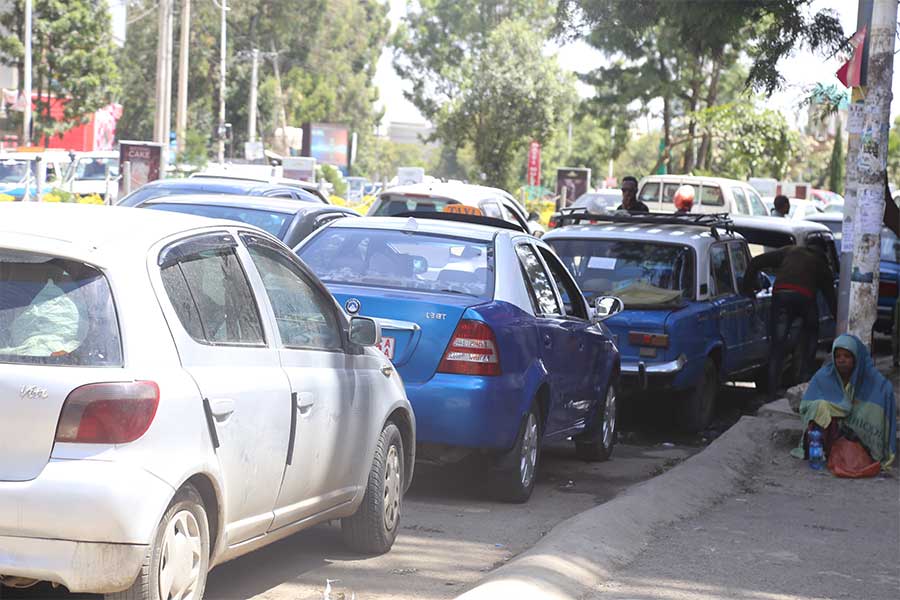
Life Matters | Jun 22,2019
Jul 18 , 2021
By BAMLAK FIKADU ( FORTUNE STAFF WRITER
)
Saving and credit cooperatives across the country are racing to begin providing interest-free saving services, particularly in unbanked rural areas and regions with large populations adhering to the Islamic faith.
The cooperatives, under the watch of the Federal Cooperative Agency (FCA), will avail a range of services including Mudarabah, a profit-sharing savings account; Wadiah Yad Amanah, a savings account subject to administrative fees; Qard Al-Hassan, interest-free loans; and Salam, a mode of financing that enables borrowers to pay debts using commodities instead of money, especially well suited to smallholder farmers.
According to data from the Agency, more than 21,000 cooperatives and 131 unions operate in the country with an aggregate capital of over 21 billion Br and some five million members. These institutions disbursed over 3.7 billion Br in loans to under one million borrowers last year.
Cooperatives operating in the Silte Zone of the Southern Regional State were the first to introduce these Sharia-compliant services two years ago as part of a pilot programme. Almost two dozen cooperatives under Nur Saving & Credit Union, which comprises 142 cooperatives, are among those currently offering interest-free services in Silte Zone.
Their efforts, however, have been stalled due to COVID-19, according to Fikadu Tadesse, general manager of Nur.
"We're also encountering a huge gap awareness in the community," said Fikadu.
The cooperatives under the Union have an average of 200 members each, who must deposit a minimum of 30 Br a month to keep their membership. They can take loans up to three times their total deposits with a return period of one year.
"This can be extended under some circumstances," said Fikadu.
Cooperatives in Oromia and Amhara regional states are watching to follow suit, with others in Afar and Somali regional states planning to begin interest-free service in the coming year.
Abdi Gudina Saving & Credit Union, in Adama (Nazareth), Oromia Regional State, is one among these cooperatives. Established in 2007 with a capital of 875,000 Br, it will start providing interest-free financing in the coming months in the city of Adama, availing Mudarabah, a profit-sharing savings account, Wogayehu Tsige, head of the Union, disclosed to Fortune.
Abdi Gudina has 52 million Br in capital and 52 cooperatives under it, serving over 12,000 members.
The interest-free services play a major role in building financial inclusion, according to Berhanu Tolera, head of the Credit & Saving Directorate at the Federal Cooperative Agency.
"Financial services are not equally available to all members of society," he said. "These services will allow low-income members to participate in the market."
Almost two-thirds of the Ethiopian population is unbanked, a World Bank study conducted two years ago discovered. A financial inclusion study from the World Bank also shows credit unions and interest-free banking are relatively unknown across the country and have registered higher usage among rural adults than their urban counterparts.
The establishment of saving and cooperatives credit unions in Ethiopia began in 1964 and was pioneered by the employees of Ethiopian Airlines. About a decade later, there were 28 such institutions with over 6,000 members. Half a century after its inception, the number of unions has grown to 14,000 with aggregate capital of 5.2 billion Br.
The Agency has been facilitating the adoption of interest-free services after surveying similar initiatives in Kenya, Rwanda and Uganda, according to Ayalsew Workneh, public relations director at the FCA.
Ibrahim Ismael, an expert with eight years of experience in interest-free financing, believes the low financial inclusion can be attributed to the absence of Shariah-compliant services and products.
"The biggest challenge in Islamic financing is getting initial funding," he told Fortune.
To be Shariah-compliant, funds for interest-free financing services are required not to have been generated from interest-bearing activities. According to the expert, this is difficult to attain as the majority of financing has been in circulation in an interest-bearing environment.
PUBLISHED ON
Jul 18,2021 [ VOL
22 , NO
1107]

Life Matters | Jun 22,2019

Fortune News | May 04,2019

Fortune News | Jun 20,2020

Fortune News | Sep 14,2019

Featured | Aug 22,2020

Dec 22 , 2024 . By TIZITA SHEWAFERAW
Charged with transforming colossal state-owned enterprises into modern and competitiv...

Aug 18 , 2024 . By AKSAH ITALO
Although predictable Yonas Zerihun's job in the ride-hailing service is not immune to...

Jul 28 , 2024 . By TIZITA SHEWAFERAW
Unhabitual, perhaps too many, Samuel Gebreyohannes, 38, used to occasionally enjoy a couple of beers at breakfast. However, he recently swit...

Jul 13 , 2024 . By AKSAH ITALO
Investors who rely on tractors, trucks, and field vehicles for commuting, transporting commodities, and f...

Oct 25 , 2025
The regulatory machinery is on overdrive. In only two years, no fewer than 35 new pro...

Oct 18 , 2025
The political establishment, notably the ruling party and its top brass, has become p...

Oct 11 , 2025
Ladislas Farago, a roving Associated Press (AP) correspondent, arrived in Ethiopia in...

Oct 4 , 2025
Eyob Tekalegn (PhD) had been in the Governor's chair for only weeks when, on Septembe...